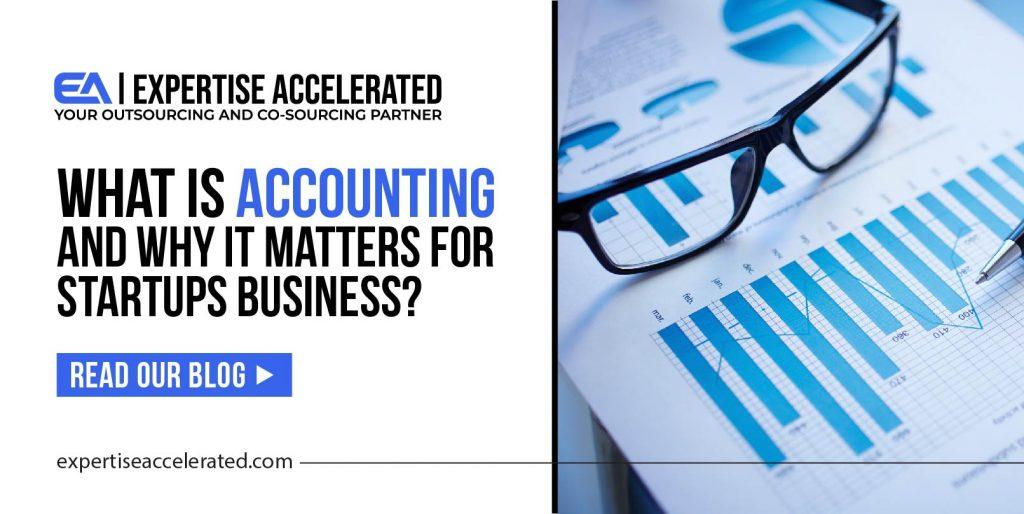Accounting is often regarded as the “language of business”. It is a track record of expenses, investments, assets, and profits or debts of an enterprise.
Accounting for start-up businesses aims to provide you with information about your enterprise to help you make well-informed decisions, run your business efficiently, maximize profits and reduce costs.
Well-versed accountants can tell the whole story of an enterprise by just looking at its accounting records.
They can help you understand whether your business is declining or making profits. Moreover, they also have an eagle eye for determining potential setbacks that your enterprise could be vulnerable to.
Following are a few accounting terms and business accounting tips that you should be aware of before starting your own enterprise or if you already own a small-sized business.

1. The Accounting Equation
It is the foremost step in understanding accounting. The accounting equation states:
Assets = Liabilities + Net Equity
These terms can be quite confusing if you are just starting out in the accounting industry. Here is what they mean:
Assets: The investment owned by you or your company.
Liability: The loan you take from lenders to buy your assets.
Net Equity: Your interest or profits after the debt has been repaid and assets liquidated at face value.
For example, you invested in an enterprise that now has assets worth of $500,000. But starting out, you had taken a loan and you still owe your lender $250,000 (your liability). The remaining $250,000 is your net equity or net worth in the business.
You can also easily subtract your liability from your assets by rewriting the accounting equation:
Assets – Liabilities = Net equity or Net worth
$500,000 – $250,000 = $250,000
Your liability is an asset to your lender. Likewise, if you lend an amount to someone that is their liability and your asset.
2. Bookkeeping
Bookkeeping is the track record of your business transactions. It is used to generate financial statements. It is one of the most important factors of accounting and keeps you aware of your spending.
Since there is no professional certification in the U.S. to be a bookkeeper you have to beware of frauds who might charge you unfairly. Save costs and rely on Expertise Accelerated’s offshore bookkeeping services.
3. Generally Accepted Accounting Principles (GAAP)
GAAP is the framework of accounting rules in the U.S. used in the preparation of financial statements. It is created by the Financial Accounting Standards Board (FASB).
It assures investors that all the companies are operating on a single set of rules. If a company appears better in numbers on paper, then it is not because it is following a different framework of accounting but because they are just making profits which makes it easier for investors to invest.
4. Cash Basis
On cash basis, sales are proportional to cash received i.e., sales are recorded only when the cash is received.
Similarly, expenses are recorded when cash is sent out. The drawback with this method however is that it does not reflect the economic reality of an enterprise.
For example, you own a café and its monthly revenue is $50,000. But in the month of May, you start selling sandwiches as well. So, you stock up on bread, sauces, and chicken which costs you more than you usually spend on a monthly basis on supplies.
Worst case scenario, your café does not do well in selling sandwiches. Three months later, you have to pay your supplier back with the same monthly revenue. But for more ingredients than you did before you stocked on sandwiches.
You struggle with your rent but your landlady will not know the reality of your situation because you will be making the same amount of income.
5. Accrual Basis
On accrual basis, revenue is recorded as soon as goods are delivered or services are provided regardless of when cash is received.
Similarly, expenses are recorded just when the enterprise receives its goods rather than when it pays for them.
It is a rather efficient method to manage the finances of your company.
Whenever an expense is recorded prior to its payment, it is referred to as an accrual method.
Accounting for Start-ups Businesses
Accounting for start-ups has a critical role in the development, decision-making, and financial well-being of your firm.
“The Small Business Administration (SBA) estimates that small businesses represent 97 percent of all businesses in the United States.”
As an SME’s owner, you will not have the time to keep an up-to-date record of your accounting.
You have to direct your focus towards the growth of your business i.e., getting the word out, attending trade shows, and promoting marketing campaigns.
Following are a few of the many areas in which accounting can help your start-up enterprise.
1. Effective Management
Small businesses are the most vulnerable to economic failure. Usually, entrepreneurs who are well-versed in a niche start their own enterprise without any outside help.
They take on accounting themselves which results in failure to employ basic financial discipline.
An initiative to reduce hiring costs and employee size results in company dissolution.
The best way to overcome this hurdle is to hire an offshore accounting firm at a fraction of cost where a team of accounting experts will manage your finances and help you make critical decisions for your enterprise.
2. Avoid Fraud and Error
A small enterprise is quite vulnerable to fraud. Your accounting team will help you determine any potential threat that might expose your company to economic turmoil.
3. Reduce Costs
Studies have shown that accountants are an important source of advice to small business owners, particularly in capital investment.
Accountants will help you set up a budget to help keep your costs under check and to help control the timing of your expenses.
4. Analysis of Cash Flow
A small business operates on minimum cash reserves. Your accountant will help you analyze cash inflows and outflows over an accounting period.
If you have a surplus of cash they will help you in understanding where to invest it.
5. Manage Balance Sheet
Your balance sheet shows your financial situation.
Accountants are going to keep a close eye on your accounts receivable that are expected to be converted into cash within a specific period of time because those are the amounts due from customers for goods delivered.
In case you have a payment pending, your accounting team will be there to remind you.
6. Anchor Accounting
Suppose you start up an enterprise and do not give any attention to the accounting area.
Months later, you are struggling to keep up with your competitors and your sales are decreasing. That is where anchor accounting comes in.
It involves calculating the estimated value of your assets using the financial data of your company. Once you have analyzed it with expert assistance, you can make decisions in light of the financial position you stand on.
Conclusion
Accounting aims to provide business owners with extensive transaction and financial information about their enterprises. It is the language of business.
While you are focused on growing your business your accounting team works behind the scenes to make sure that all the financial processes are operating smoothly and you are clear of any error or fraud.
The idea of relying on a professional accountant may be expensive. This cost can however be reduced by employing an outsourced accounting firm using offshore resources. Good accounting support pays back in the latter success stages of your enterprise.

